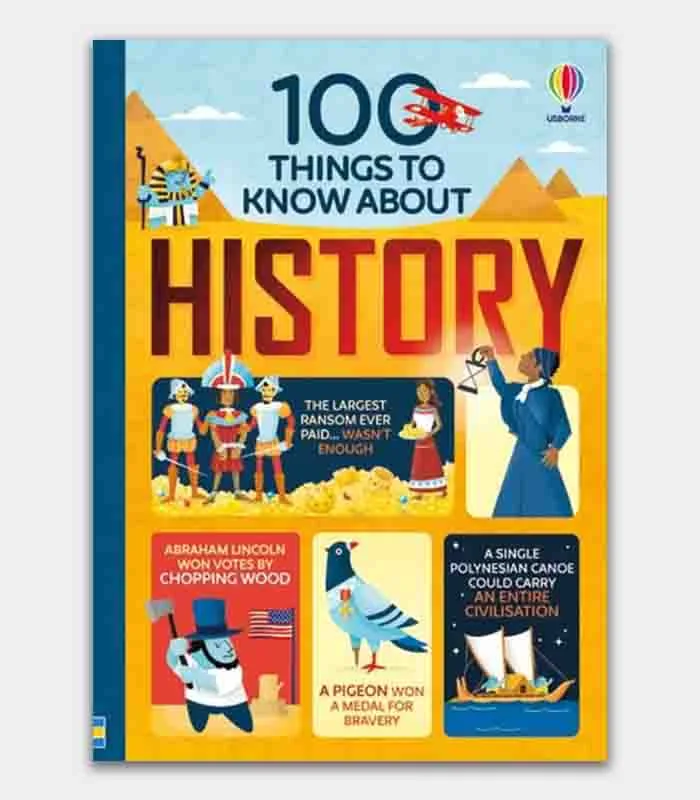100 Things to Know About History
Did you know that mammoths and pharaohs walked the earth at the same time? Or that over 30 types of gladiators fought in ancient Rome? This fascinating book is filled with 100 historical facts, bright, infographic-style illustrations, a glossary and index. There are also links to specially selected websites with video clips and more information.
Here are some fascinating facts about history that you might not know:
- Ancient Civilizations: The ancient city of Pompeii was frozen in time by the eruption of Mount Vesuvius in 79 AD, providing a unique glimpse into daily life in ancient Rome.
- World Wars: The Treaty of Versailles, signed in 1919, imposed harsh penalties on Germany after World War I, contributing to the rise of Nazi Germany and the outbreak of World War II.
- Exploration: The Viking explorer Leif Erikson was the first European to reach North America, around 500 years before Christopher Columbus.
- Leaders: The ancient Egyptian pharaoh Hatshepsut was one of the few female rulers of Egypt and is considered one of the most successful pharaohs in history.
- Empires: The Mongol Empire, established by Genghis Khan, was the largest contiguous empire in history, covering over 24 million square kilometers.
- Science and Technology: The ancient Greeks made significant contributions to science and philosophy, including the development of democracy, the concept of the atom, and the discovery of the laws of motion.
- Art and Architecture: The Taj Mahal, built in India in the 17th century, is considered one of the most beautiful examples of Mughal architecture and a symbol of love.
- Religion: The Bible is one of the most widely read and influential books in history, with over 5 billion copies sold worldwide.
- Inventions: The printing press, invented by Johannes Gutenberg in the 15th century, revolutionized communication and played a key role in the spread of knowledge during the Renaissance.
- Famous People: Albert Einstein’s theory of relativity changed our understanding of space and time, while Marie Curie’s discovery of radium led to major advances in medicine and science.
These are just a few examples of the many fascinating facts about history. From ancient civilizations to modern-day events, history is full of surprises and insights that can help us better understand the world we live in today.








